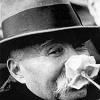- 16 Jan 2006 19:50
#789602
I see Modern European History start in the 17th century,marked by the Scientific Revolution as the result of gradual cumulation and burst of ideas against the conservative views of the chruch on nature,thus giving birth to the modern science whose heritage was extended during the Enlightenment in the following century.The Scientific Revolution truly marked a break with the previous centuries in revolutionising the way people think of nature and themselves - a shift of paradigm if you may.
In the case of China,there are two popular views on when the line should be drawn.One asserts the Modern Chinese History began in the 16th and 17th century with the arrival of the Portuguese and Spanish explorers and missionaries which marked the first contact with the West;the other view which I favour contends it began with the Opium War in the mid-19th century.the reason being that it serverly challenged the feudal order of the Chinese society which had lasted nearly two thousand years and marked the onset of moderisation in terms of the import of Western ideas and technologies.
Are there any other alternatives?What about other parts of the world?When did their Modern History begin?And why?
In the case of China,there are two popular views on when the line should be drawn.One asserts the Modern Chinese History began in the 16th and 17th century with the arrival of the Portuguese and Spanish explorers and missionaries which marked the first contact with the West;the other view which I favour contends it began with the Opium War in the mid-19th century.the reason being that it serverly challenged the feudal order of the Chinese society which had lasted nearly two thousand years and marked the onset of moderisation in terms of the import of Western ideas and technologies.
Are there any other alternatives?What about other parts of the world?When did their Modern History begin?And why?























 - By Rich
- By Rich